Interview with David Dower
P. Carl: You framed the convening from Scarcity to Abundance and I know you have some theories about the current abundant state of the new play sector. Why structure the convening around these terms?
David Dower: Framing is exactly the right concept here, [P. Carl]. I have been increasingly frustrated, building up over a number of years, with our inability as a field to break out of the scarcity mindset. In the years since the TCG New Works New Ways convening in 2002 that we keep referencing here, so much has happened. There are so many new programs, so much new support, so many leading organizations that have changed their behaviors—from the LORTS to the play labs and everyone in between. Even commercial and quasi-commercial producers have amended and adapted practices. Networks and partnerships have developed and gained strength, sharpened their focus, and built momentum—from the National New Play Network to the Network of Ensemble Theaters.
We have new data and analysis. We have new tools. We have more visibility with the press and the general audience. Yet the narrative simply hasn’t changed. Just read Charles Isherwood’s column—the one that set Todd London off. He could have written that article in 2002. The New York Times did write it in 2004 about Victor Lodato. I have a copy of George Lakoff’s Don’t Think of an Elephant! among the small collection of books at my desk. I first heard him speak at a TCG Conference in Seattle. And he spoke of the challenge for the Left, particularly, in terms of framing. And it stuck with me. This term “abundance” came up when I was doing the field survey that led to writing The Gates of Opportunity. I was traveling around the country interviewing emerging artists and the keepers of their gateways to a life in theatermaking, and there was just so much energy, so much imagination, and so many different approaches to the work, to opportunity, to stewardship.
It might have actually been in Austin when it clicked for me that there was so much more in motion than our stories about ourselves would lead us to believe. It was the National Endowment for the Arts, in the Request for Proposals for the NEA New Play Development Program, that gave us the charge of conducting a “positive inquiry into the field.” And again there, looking at all the applications and the diversity they represented—who was applying, how they were working, what they were working on, who they were working with—it was not possible to fit the story inside the doomsday frame. You saw (can still see on NewPlay TV) who the panel chose in that first round and it’s a remarkable story those projects tell. It’s not the story we’re reflexively telling, not in any way: who the artists were, where they were working, what they were making, how they were making it. So, we started down this path at the Institute of trying to excavate and illuminate what’s really at play in the field of new work. Long way around to an answer here, but the title of the convening expresses in the most direct, albeit wonkheaded way, our desires here in the Institute: that we might as a field find our way out of the Scarcity mindset and let the Abundance sink in. And then let it guide our priorities and behaviors. How will we operate then—individually and with each other?
We’re living through a period that quite likely will look to have been the 'golden era' for new American work and the people who make it—this moment is our responsibility. We are the people who will either capitalize on its potential for future generations of artists and audiences or we will squander it
This moment, and it is a moment—we’re living through a period that quite likely will look to have been the “golden era” for new American work and the people who make it—this moment is our responsibility. We are the people who will either capitalize on its potential for future generations of artists and audiences or we will squander it. There’s no middle ground that I can see—though I am not really looking for middle ground, I guess. Capture the moment or squander the moment. That’s all the choice we have. If, when the next generation opens that lock box, we’ve met our moment—met the challenge of it to create a sustained outcome from the abundance in our sector in our time—that will have been a lasting contribution to American theater. If, on the other hand, we’ve drifted away from our commitments—the things we wrote and contributed to that box—and gone back to the same old song about scarcity, we’ll have to own that result. So, the hope is that by naming these opposite poles in terms of a journey—moving from Scarcity on one hand to Abundance on the other—it creates a frame for us that breaks the stagnation in our narrative and finally allows us to take responsibility for the progress we’ve made and for delivering on the promise of that progress.
Carl: What’s the impulse in this business to focus on scarcity? Do you think sometimes we approach our work in the arts from the defensive and if so, why?
David: I don’t know. If I knew that I could stop focusing on it and go back to making my own work! Is it defensiveness? I don’t think so. Frankly, I think it’s just easier to sit in it—it explains a bunch of stuff, you know? “I am not having more personal success because it’s a time of scarcity.” “I can’t really make opportunity for more works and artists because it’s a time of scarcity.” “There’s no audience for new works so we’ll focus on the known.” “If there were more resources I could consider that priority or that behavioral change, but resources are scarce so I’ll continue on the same path.” “If there were more resources, I could afford to be more welcoming of the new, more open to evolving roles and relationships and hierarchies, but the risk of forfeiting precious resources is too great for me to engage.” But even as I say that I’m thinking about all the people who are saying “to hell with scarcity—I am going to change my priorities and behaviors; there are audiences for this work and I’m going to find them; I am going to confront the questions of quality and accessibility and infrastructure—I am going to see what must be done and then do it; I am going to celebrate the ‘bright spots’ and figure out how their existence informs my decisions and priorities.”
And I know there’s a whole thing about privilege in this conversation as well. I work at Arena Stage, and Arena Stage has the financial support of the Andrew W. Mellon Foundation for the work of the Institute. And yes, that’s a privilege. And with that comes a huge responsibility. I always think about Morgan Jenness when these questions come up. She’s contributed several important ideas to the framing of this discussion—and she wasn’t even here for this convening! She’s the one who gave us the important quote in recalling a conversation she had with Joe Papp while on staff of The Public. She was using her time at her job to try to find a production of a play the Public had commissioned and ultimately wasn’t going to produce. Joe called her on it, saying she worked for the Public and she should not be spending her time finding a production of the play elsewhere. As she relates it, her response was “I don’t work for The Public Theater, Joe, I work at the Public. I work for the American theater.” Joe, being Joe, agreed and Morgan went on finding another theater to produce the play. I think that’s an important reminder that these resources are not “our” resources, they are the field’s resources and we are each their stewards. Morgan also uses the story of the “stone soup” to describe a way of working that breaks out of the notion of “haves” and “have nots.”
In that story, each person brings what they have—a carrot, an onion, matches, a pot, a roast, a field of potatoes, candles, fabric that turns into table cloths (I’m embellishing here, can you tell?)—and from each contributing the things they have, a great feast for everyone. The person who has the roast or the field of potatoes makes the same contribution as the person with one match or an onion. Arena, in this moment, has singular and specific capacity in this conversation, and it is our job to make sure that these resources are put to work on behalf of the whole sector. I love, for example, the efforts at Oregon Shakespeare Festival to put all of their resources in play in that way. They’ve identified their acting ensemble as a significant, under-leveraged resource for new play development. So they’re making the actors available to writers. They’ve got financial capacity and they’re using it to commission thirty-seven plays—and openly and aggressively seeking partnerships for all of those commissions. Even to the extent that they are inventing ways of relating to commissions to try to understand what’s possible in aligning these capacities of theirs with other interested parties—whatever those parties have to bring to the table.
At Actors Theatre of Louisville, they’ve put their Humana resources in service of ensembles as well as playwrights. Not only do the invited companies get the visibility and support of that Festival environment, an important resource in and of itself, they also have access to institutional resources like a shop, and dramaturgy, and rehearsal space. When we start thinking more broadly about resources—beyond cash and cachet—we start to see the abundance in more detail and we can activate our own bounty on behalf of the whole community of new play practitioners. One of the responsibilities we all carry is to break the back of the prevailing narrative that says that all playwrights are infantilized, that there’s no audience for their work, that the entire sector has fallen permanently into dysfunction around the relationship of the artist to the institution, that there are no bright spots in terms of accessibility, diversity, etc. And that only money will cure any of these ills. We just have to stop framing our situation this way. That just tees up critics on all fronts—Congress, media, our family and friends who can’t take us seriously as professional adults—for more disdainful volleys that rehash the same old tired tropes that doom us to disrespect, dyspepsia, and irrelevance.
What are you doing? Right now. And how is it contributing to the long-term effectiveness and impact of the sector in which you are working? Got a story? Tell it! The doors are blown off the palace on the hill, the smoke is clearing from the back room—everyone can have their say today. What can you be doing that will have the single greatest impact on the sector? What’s stopping you? “Find out what must be done and then do it.” That’s Buckminster Fuller. Fuller has had a huge impact on my thinking. Even though I never saw the man speak, I’ve been deeply involved with the play about his life for more than a decade.
I go back to the text often, and every time I find another aspect of it jumping out at me. For instance, he talks about Man being a “local problem solving unit,” and that we’re here to solve problems, “and the better we get at it the more problems we get to solve.” He’d also calculated, in the 1970s, that there was at that time more than enough resources in the world “to take care of everyone on the planet at a higher standard of living than we’ve ever known.” Four decades later we’re still living in a world that is telling the stories of scarcity, pitting us against ourselves, and all the while an ever-shrinking miniscule minority of the planet hoards an ever-increasing percentage of the resources as we hurdle toward, to use his word, “oblivion.” I don’t want that to be our legacy in the new play sector. Do we have enough, right now, to create a “dignified life,” as Oskar Eustis called it recently, for every playwright in the country? Probably not—there are many more people writing and devising plays than there are production weeks in this country. But are we moving in a direction where we are taking better care with the resources we do have and reaching a wider group of people with them than we have in the past? I am pretty certain we are. I know for a fact that many of us are, at least.

Carl: You and I were at a table together in 2002 in Portland to talk about the new play sector. That convening was the start of something for you, can you talk about what was sparked at that gathering?
David: Yeah—that infamous “kids’ table”—wasn’t that what you called it in an earlier article? I recall it differently from the way you do, though the end result is the same. That was at one of the many points where things were very rocky for The Z Space, financially. And I was beside myself trying to figure out how to connect the work we were doing (and the artists who were doing it) with something larger than the day to day survival existence. I saw there was to be “New Works New Ways” this convening and it struck me that there might be people there who were struggling in the same ways or, even better, who had figured a way out of it. The Z Space is primarily a development center—even more so in 2002 since that was well before Z had a permanent performing space.
Anyway, I used my own money—against the wishes of my wife—to get to Portland to meet my “tribe” and seek the counsel of my elders in new plays. But I had a hard time connecting—and interestingly enough it was the frame, again, that was in my way. The conversation was bouncing happily around the room between the large producing organizations, the handful of leading presenters, and the handful of playwrights. I could see that there were people there who were falling outside that frame and these were largely the people I was hoping to hear from and connect with. So I got permission to organize a table over dinner where people who were—and I’ll never forget this phrase because it caused a lot of grief there and later—“primarily focused on development.” There was an awkward moment of me having to call out to the room as people were sitting for dinner that this was who I was hoping would come sit with me. You and I had already found each other—that’s a whole other story—so I knew I wasn’t going to be sitting there by myself.
But I remember how anxious I felt waiting to see who else would join us—and how elated I was that Todd London (Todd London!) elected to sit there. So, that kids’ table was my fault. But it was a great group and I think we’ve all pretty much stayed in contact and in motion with each other ever since. What it started for me was this whole search for a national infrastructure for new work. Olga Garay (Olga Garay!) who was Program Officer at the Doris Duke Foundation at the time, challenged me right there in Portland to identify the “tribe.” “How many places out there are primarily focused on development?” I didn’t know. I remember her saying that unless we could make visible both the existence and impact of these development-focused organizations we were never going to stabilize them. So, she planted this notion of visibility for sure. And that meeting gave me a sense of the importance of understanding, first of all, and then disseminating the understanding of the role of these organizations in the health of the overall ecology for new works.
This desire to first know the infrastructure and then to advance it—stabilize, develop, and promote its effectiveness—was borne out of the conversations there in Portland, for sure. It’s actually a straight shot from there to the New Play Map, in fact, though the idea for the map came from Institute co-directors Vijay Mathew and Jamie Gahlon. And the whole “developing the infrastructure” thing—that’s become the stated purpose and guiding principle of the work we’ve chosen to do at Arena through the Institute.
Carl: Part of the way you’ve structured our conversations has been to take each topic and have a conversation of the issues and then a follow-up with the “bright spots” in the field as pertains to that issue. We have an uncomfortable relationship to talking about “bright spots” in the field, why do you think that is?
David: Yes, we do. We don’t have any practice with it, I think. We are so much more comfortable on the negative side. But you know, people kept trying. Or maybe they were just humoring me. I’m looking forward to the day when it’s routine to give shout outs to the people and organizations that have figured something out. That’s why we always credit the source around here: like Steppenwolf and the First Look 101 program. Which, by the way, is fantastic and easily portable. Steal this program. It’s powerful.
Carl: I also notice that sometimes when we do talk about our work in a group like this the tendency is to “pitch” it, like we’re convincing our colleagues of the value of our work. What’s that about?
David: Well, some of that has to do with bringing people into the room that haven’t had the opportunity, or enough opportunity. I like that about the rooms when we’ve done these convenings—so many people who wouldn’t otherwise have found themselves in the same room suddenly finding commonalities. But it does lead to this desire to plead the case for your value. I feel like I want to make a space for everyone to go “discharge” their pitch—like a little video booth or something—so that they can get that out of the way and actually start from the moment after they make that case. We tried that with the reports section of the convening book and the blog. But it takes some really aggressive moderating to move people off of this instinct, to get out of this pitch mode.
Carl: You and I talk a lot about “old stories.” The field since at least 2002 but in many cases for decades keeps churning over things like “developed to death” or “premiereitis” or “diversity.” Are we entering a time where we will be creating new stories? What’s your best guess about the content of new stories?
David: Yes, we are, said the “positive inquiry guy,” But seriously. We are. And the new stories are going to be about how we are working together. I hear more and more stories focused on ways of partnering, of aligning resources and competencies. I think we are going to hear more stories about community connections and ways in which new work is relating to the world. I think we’re going to start hearing more stories about how old barriers are falling—things like the changes taking place in the way we can use technology to connect and promote our work, or collaborations that right now seem impossible between different organizations and aesthetics. I think we’re actually going to start seeing stories about successes—look at all the ink on the path for Next to Normal. But I also think it’s our job to tell these stories, and to let them sink in when we hear or read them.
I was struck during the convening at how big a step backward the diversity conversation seemed to take, especially in light of the discussion that had been going on around the Institute all year. We’d done all this work in two earlier convenings and in two task forces that met irregularly over that whole period in between those gatherings and this one. And I was naively excited for that work to show up in this convening, for the story of “diversity in the American theatre” to have moved in measurable ways. I knew the facts on the ground hadn’t had time to make drastic changes, but the conversation had developed precision and focus and the frame seemed to be shifting. But somehow it really hadn’t. Especially not in the way I handled it. And it’s true—in the most direct and visible forum of our field there is very little evidence of progress or serious engagement with this issue.
But it is not true to say there are not bright spots—nor does it let anyone off the hook to say there are. You heard people say there are no artistic directors of color in this country. But hold the phone. The shocking, shameful truth is that there are virtually no people of color in top leadership roles at our largest theatres. But it’s just easier to say there are none, anywhere. What about Kenny Leon, Young Jean Lee, Lou Bellamy, Tim Bond, Sean San José, Tim Dang. Ralph Peña, Rubén Polendo, and Raelle Myrick-Hodges, and Rick Shiomi, and John Michael Garcés? The list actually goes on but you get my point. Is it enough? Are we “diversified”? Not by a mile. Especially in the biggest organizations. But is it “none”? No.
In the Heath brothers’ book Switch, which is so widely quoted now in our field it’s amazing to me, there’s the source story of the “Find the Bright Spots and Clone Them” notion. And I think it’s appropriate in this context to remember what was going on in that story. The guy went to Vietnam to help reverse the pandemic of malnourishment in children—a huge problem that he was given six months to show some progress on. All the talking and effort up to that point had been about these big, systemic failures and why this meant that all children were destined to be malnourished. Except they weren’t all malnourished. And it was the focus on those children and their mothers—the ones who didn’t fall easily into the frame of the “systemic failure” story that actually pointed the way to progress. So it’s not Pollyanna to say, “look at these people who are left out when you make a categorical statement.” It’s not denying the presence of the problem. I don’t find it self-congratulatory, though I acknowledge that danger. But it might at some level help identify avenues for progress on the problem. And, if nothing else, it at least says to those people who are in leadership positions in spite of the long, stacked odds, “we see you and we know you” and in the seeing and the knowing, we have to change our story.


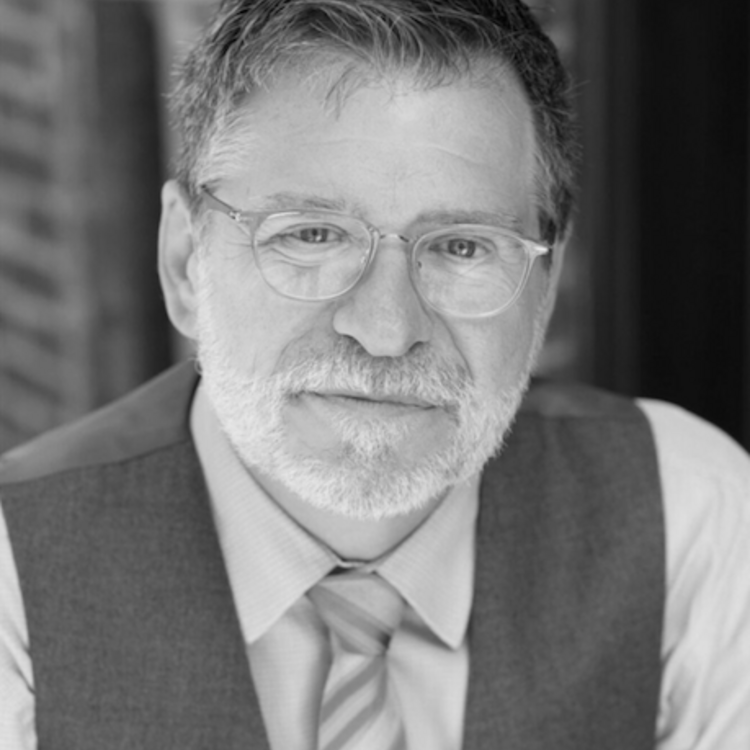
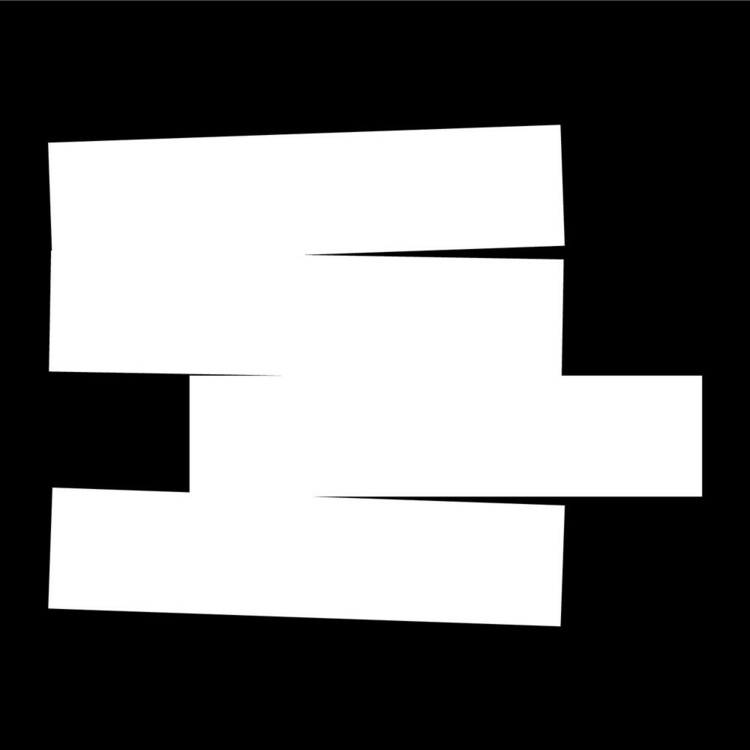
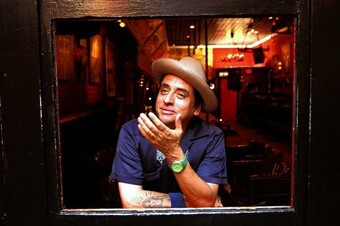


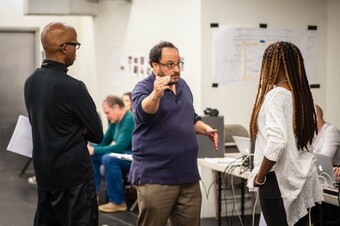

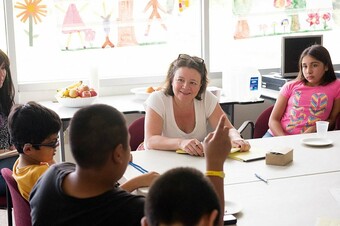


Comments
The article is just the start of the conversation—we want to know what you think about this subject, too! HowlRound is a space for knowledge-sharing, and we welcome spirited, thoughtful, and on-topic dialogue. Find our full comments policy here